Abstract
Clients in 544 genetic counseling sessions who were given numeric risks of having a child with a birth defect between 0% and 50% were asked to interpret these numeric risks on a five-point scale, ranging from very low to very high. Whereas clients' modal interpretation varied directly with numeric risks between 0% and 15%, the modal category of client risk interpretation remained "moderate" at risks between 15% and 50%. Uncertainty about normalcy of the next child increased as numeric risk increased, and few clients were willing to indicate that the child would probably or definitely be affected regardless of the numeric risk. Characteristics associated with clients' "pessimistic" interpretations of risk, identified by stepwise linear regression, included increased numeric risk, discussion in depth during the counseling session of whether they would have a child, have a living affected child, discussion of the effects of an affected child on relationships with client's other children, and seriousness of the disorder in question (causes intellectual impairment). Client interpretations are discussed in terms of recent developments in cognitive theory, including heuristics that influence judgments about risks, and implications for genetic counseling.
Full text
PDF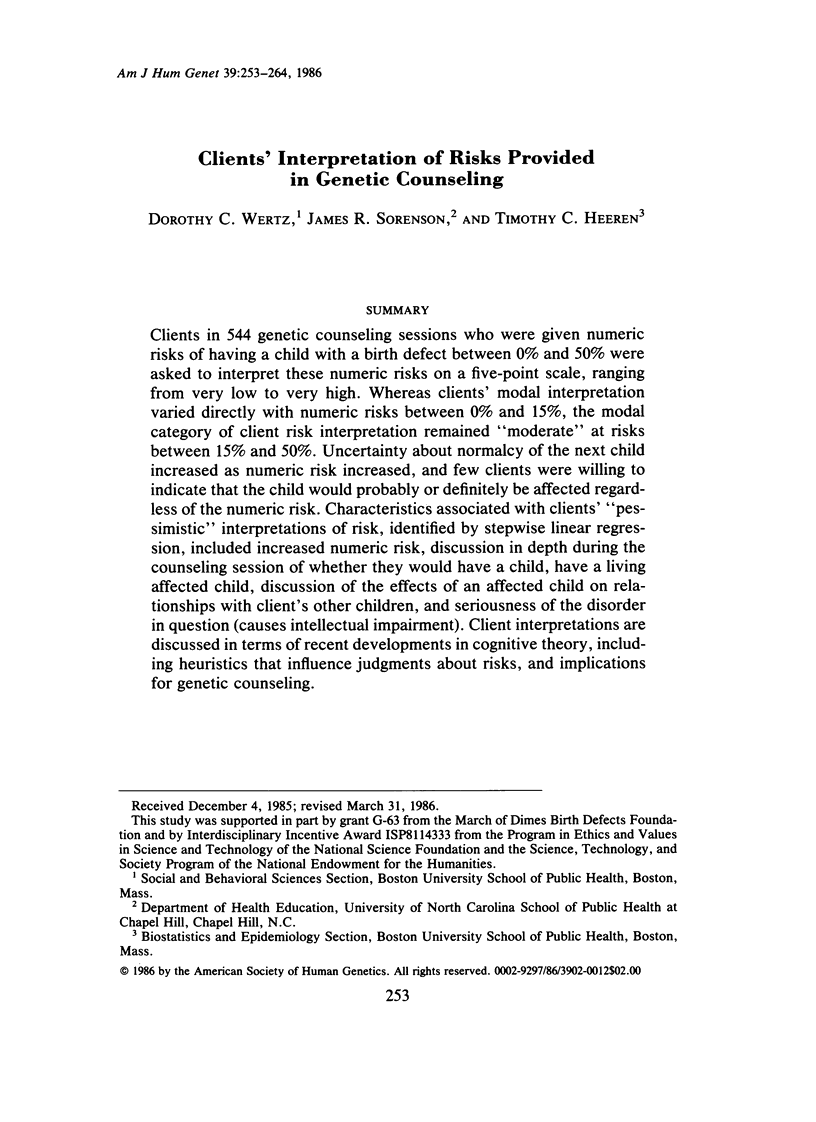
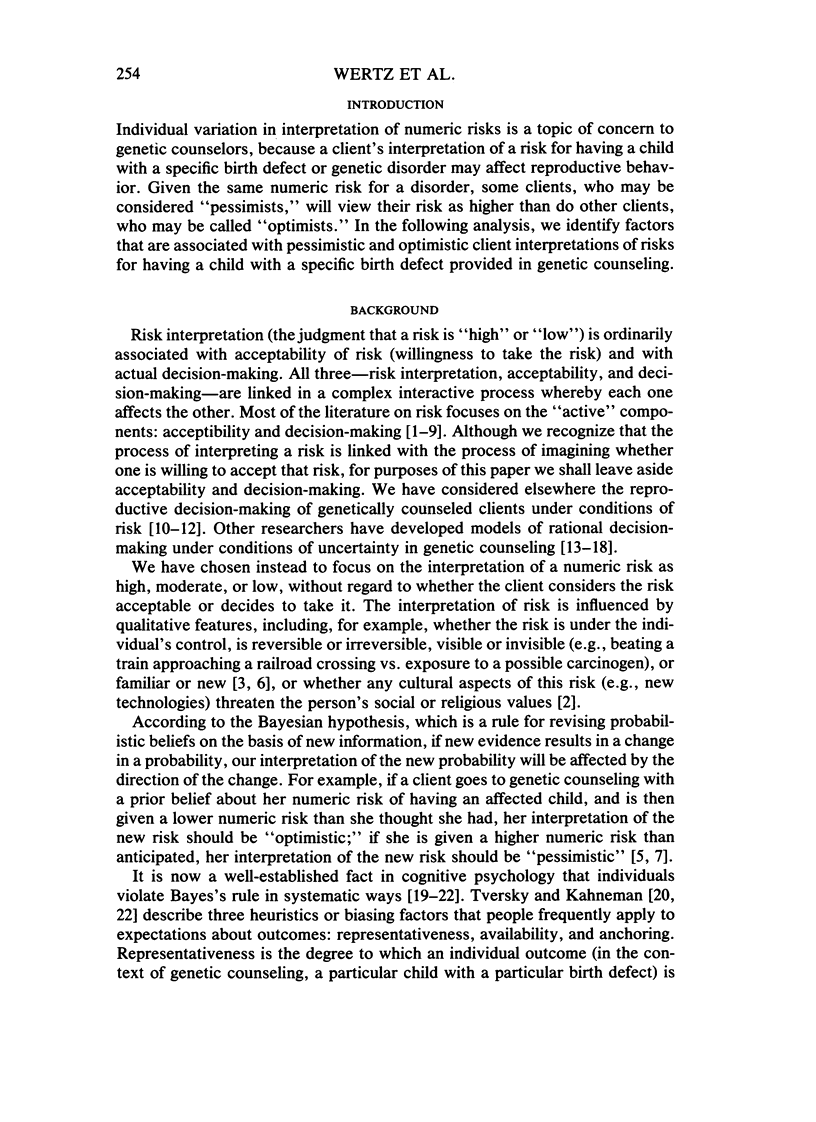
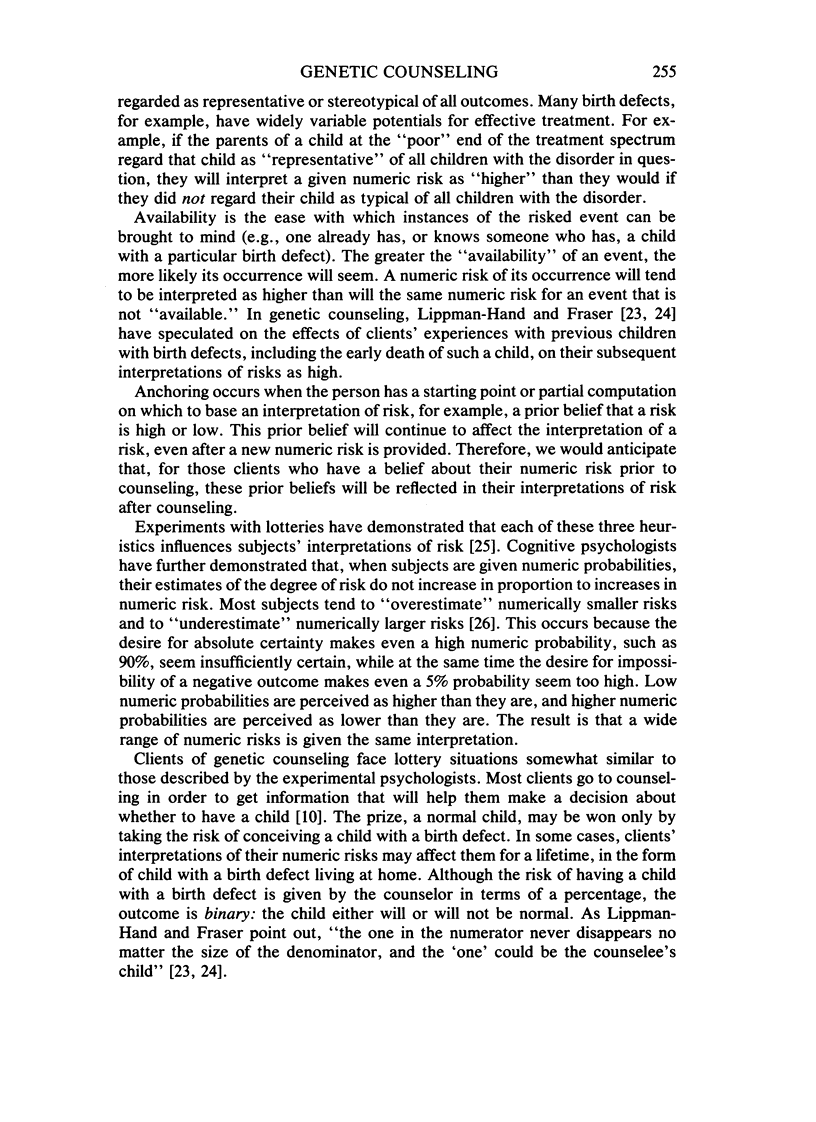
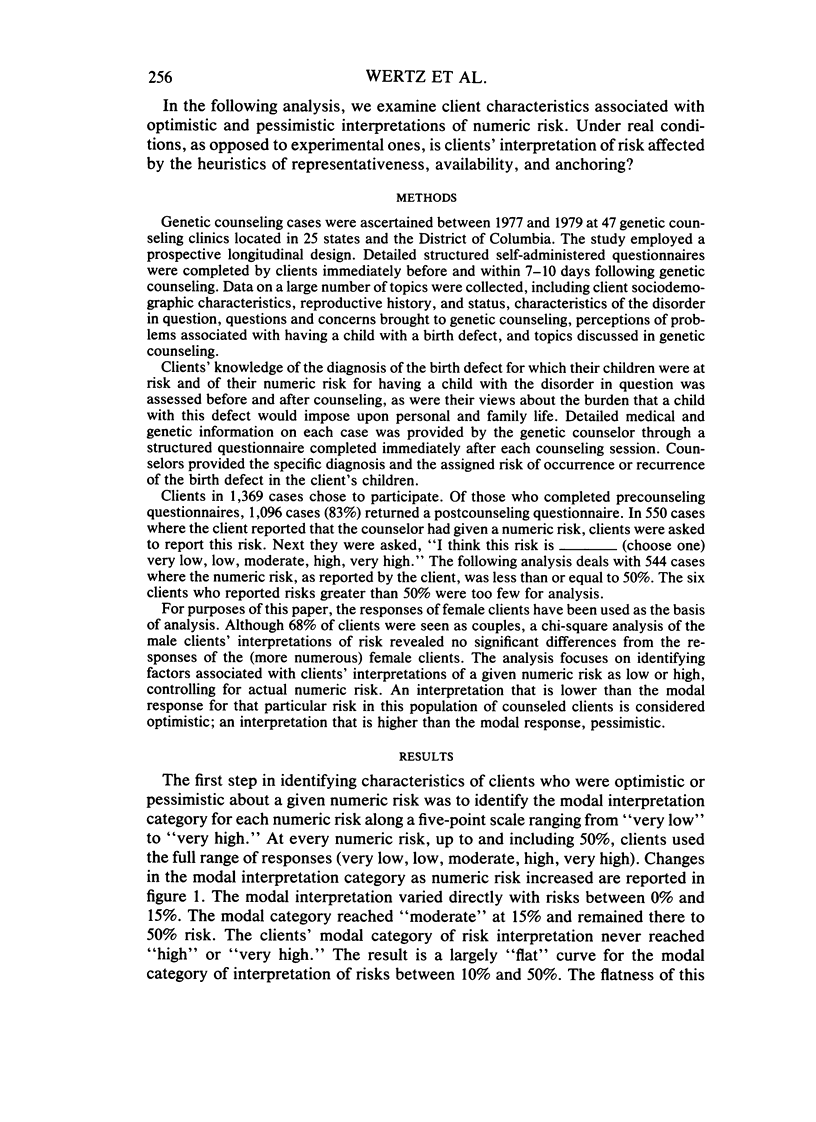
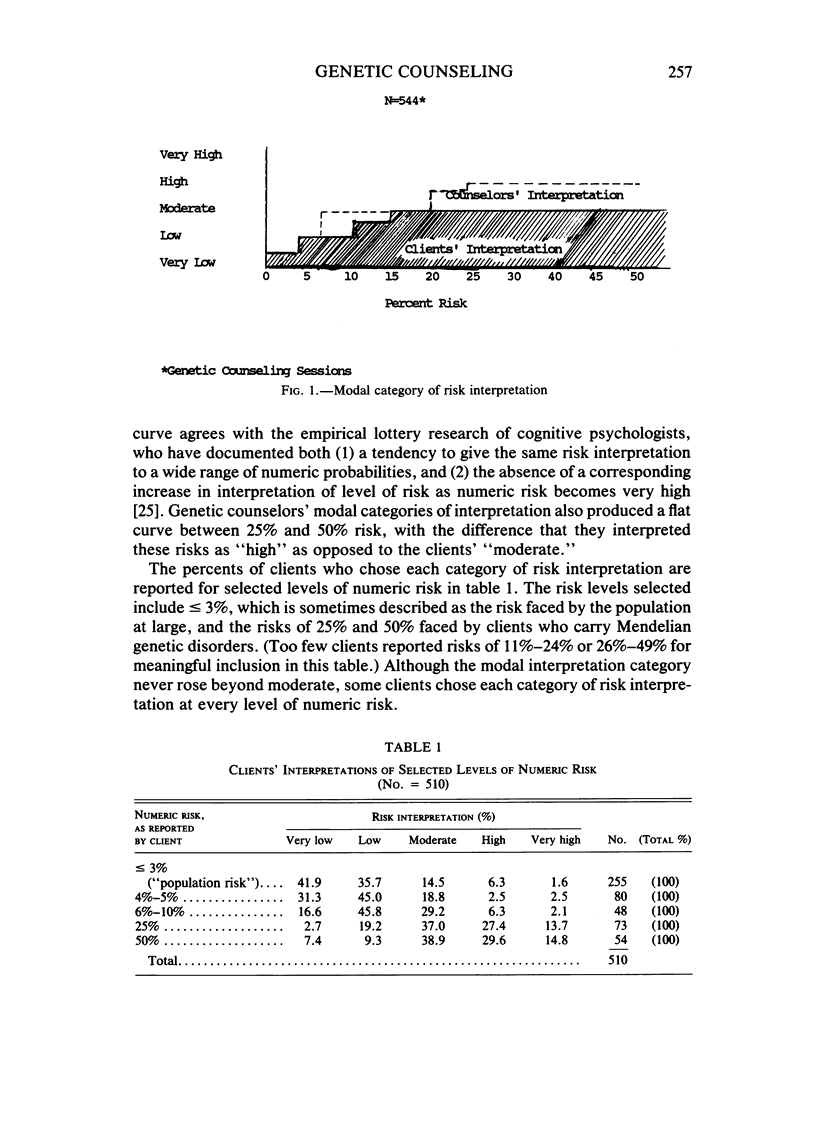
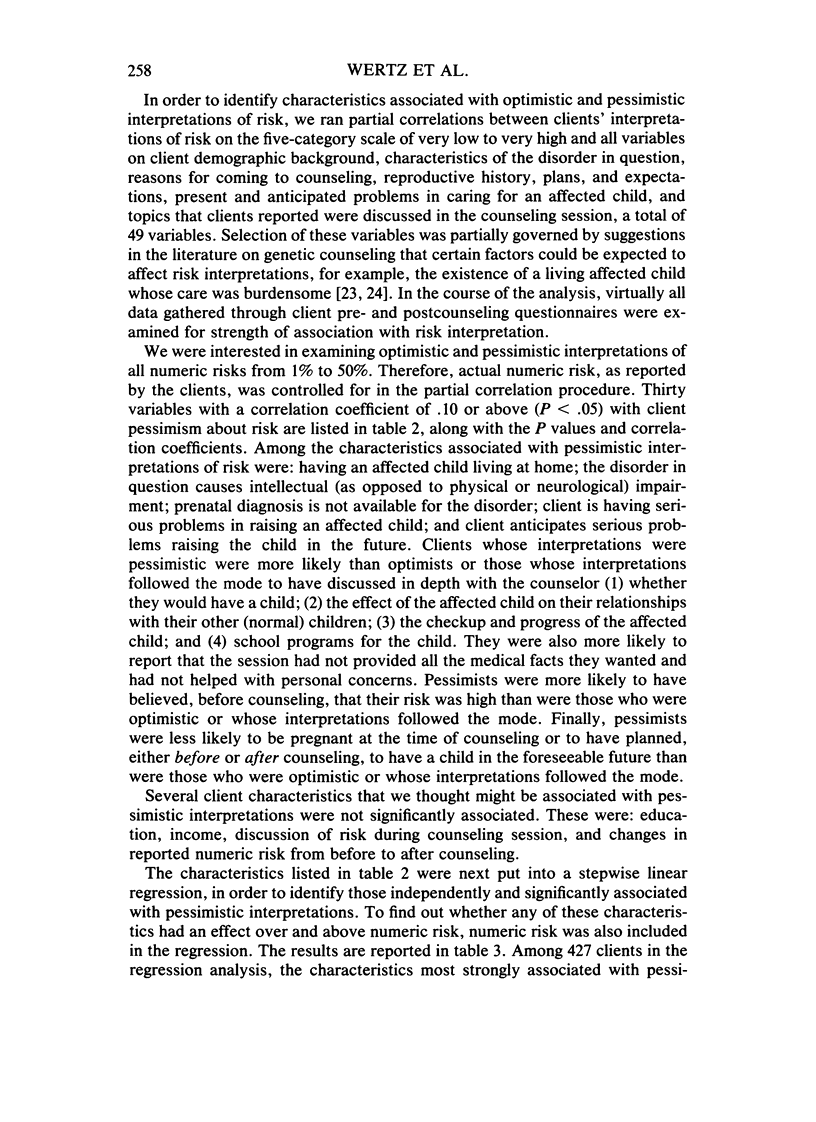
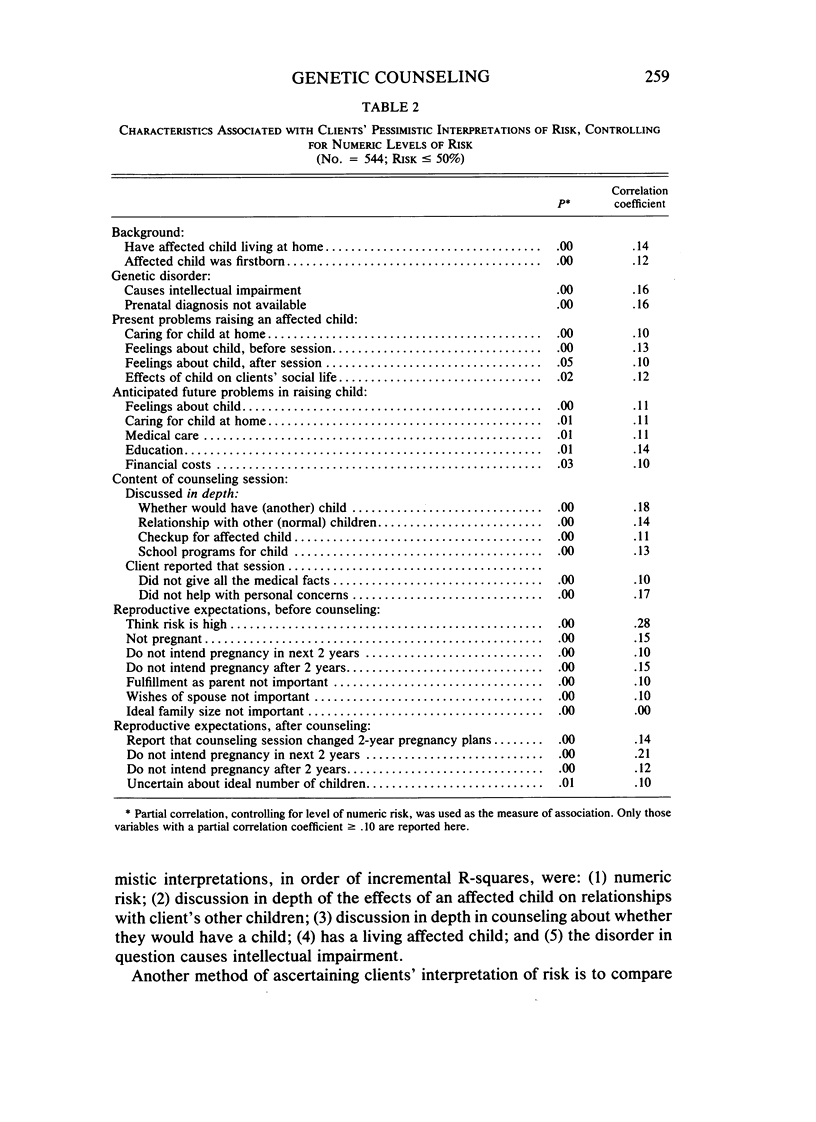
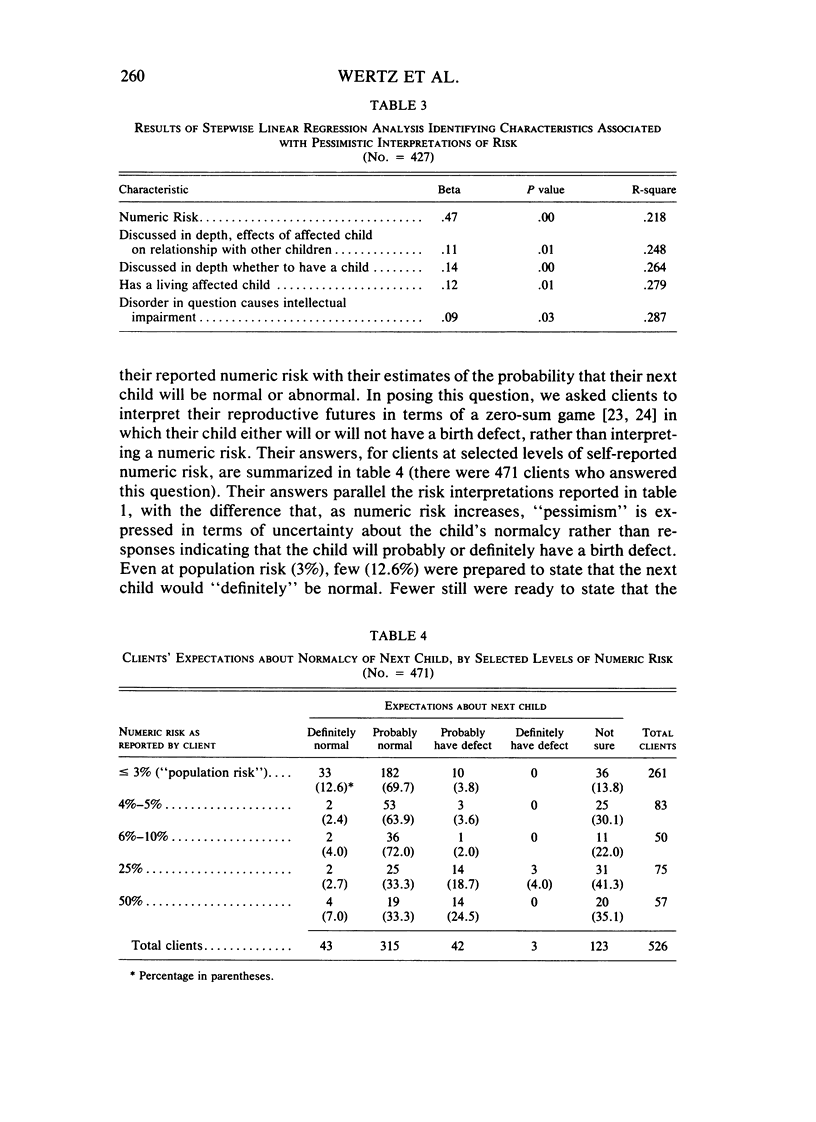
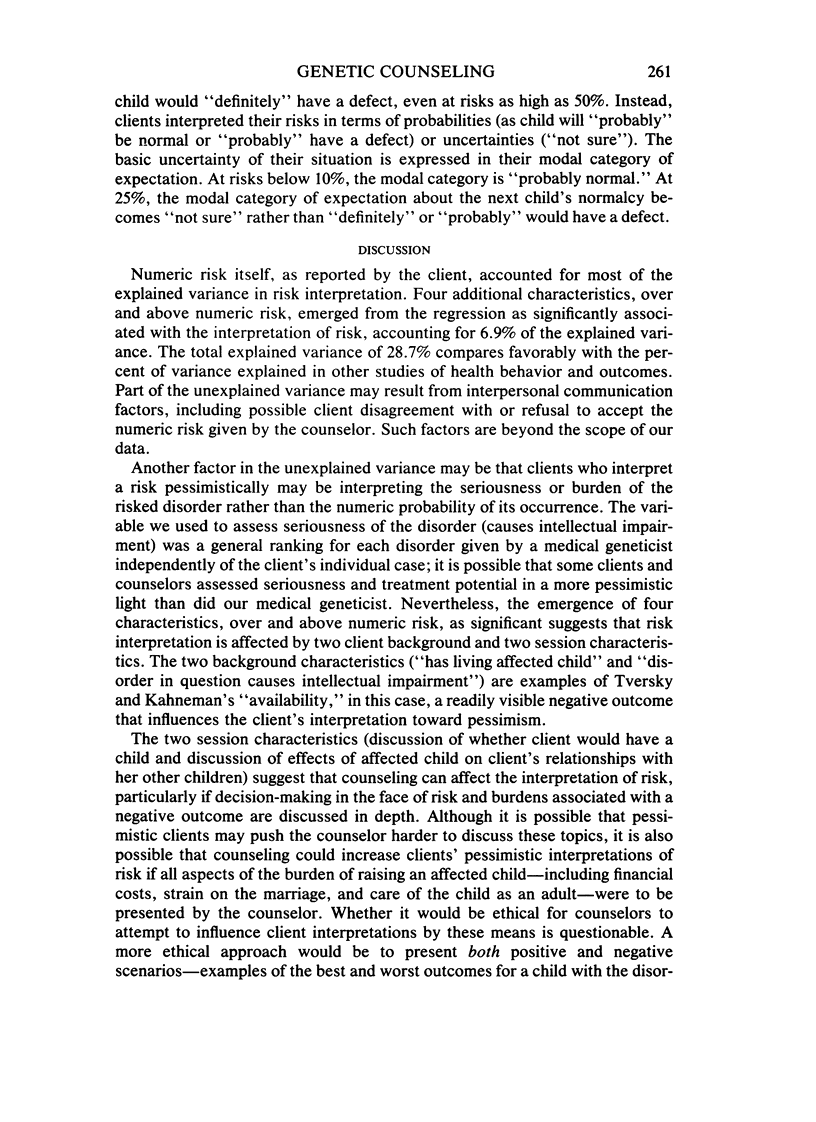
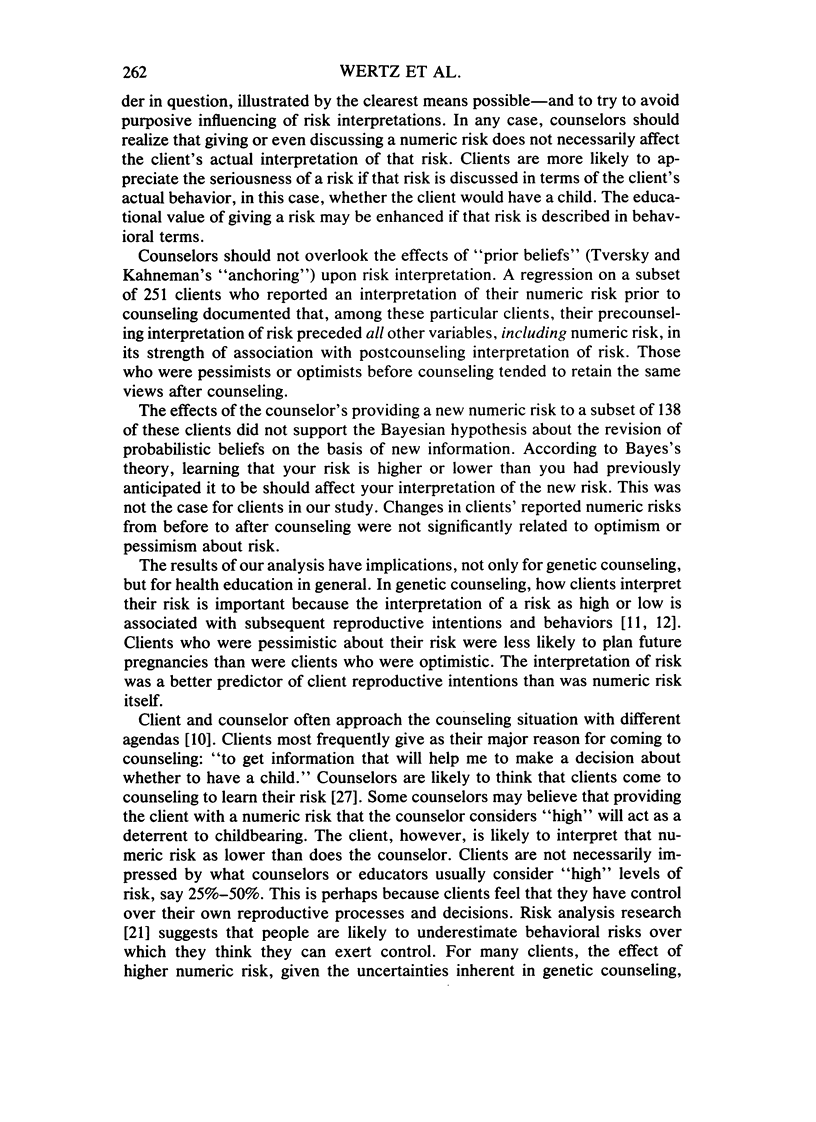
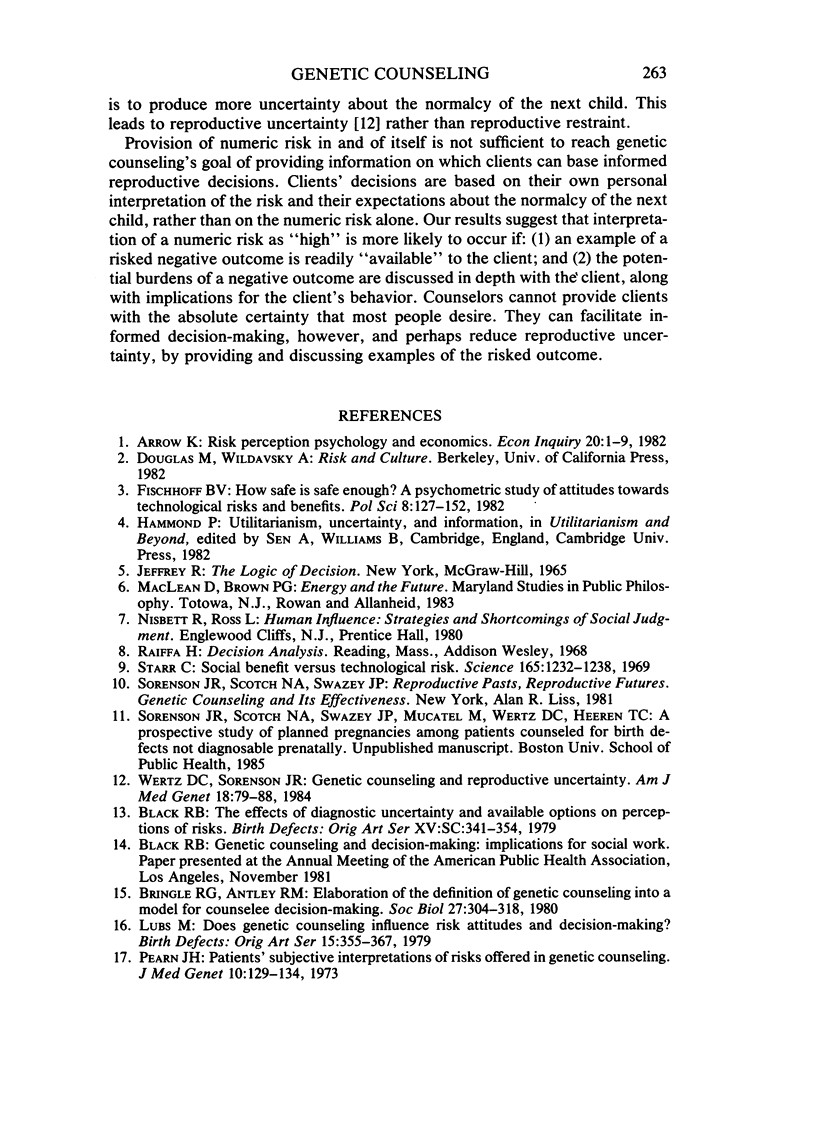
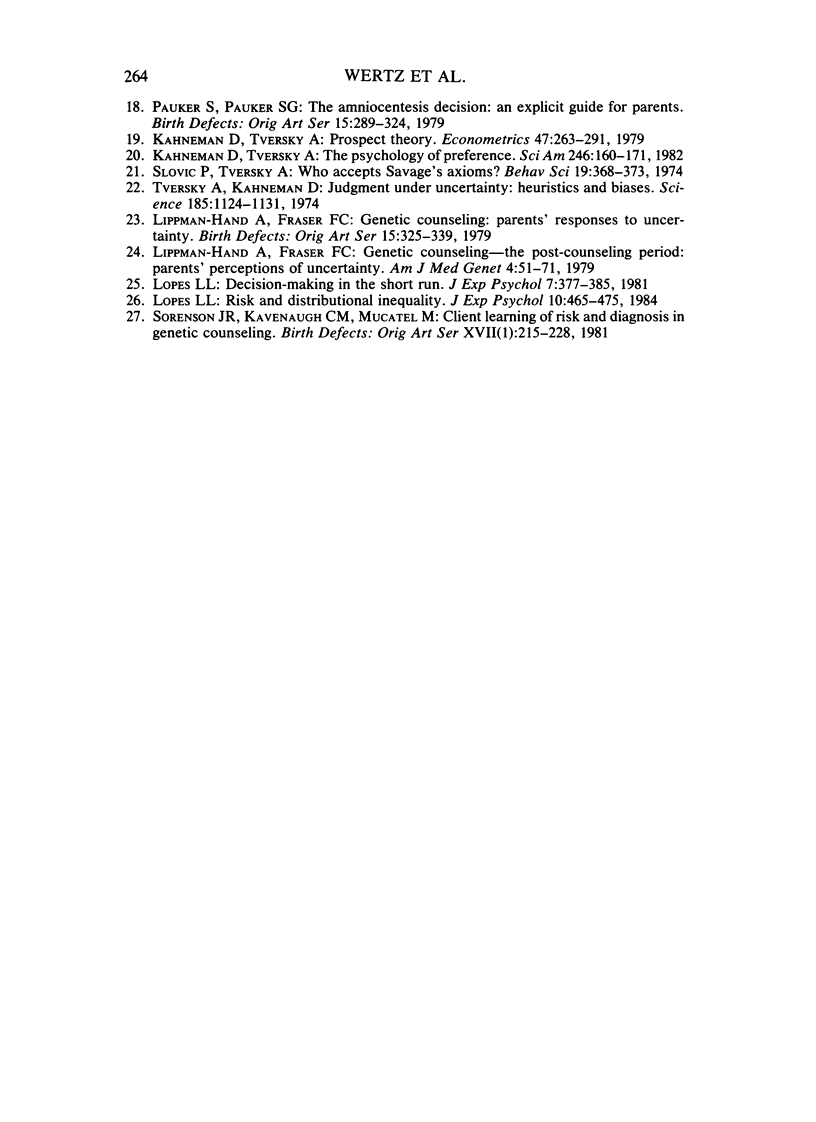
Selected References
These references are in PubMed. This may not be the complete list of references from this article.
- Bringle R. G., Antley R. M. Elaboration of the definition of genetic counseling into a model for counselee decision-making. Soc Biol. 1980 Winter;27(4):304–318. doi: 10.1080/19485565.1980.9988433. [DOI] [PubMed] [Google Scholar]
- Lippman-Hand A., Fraser F. C. Genetic counseling--the postcounseling period: I. Parents' perceptions of uncertainty. Am J Med Genet. 1979;4(1):51–71. doi: 10.1002/ajmg.1320040108. [DOI] [PubMed] [Google Scholar]
- Lippman-Hand A., Fraser F. C. Genetic counseling: parents' responses to uncertainty. Birth Defects Orig Artic Ser. 1979;15(5C):325–339. [PubMed] [Google Scholar]
- Lubs M. L. Does genetic counseling influence risk attitudes and decision making? Birth Defects Orig Artic Ser. 1979;15(5C):355–367. [PubMed] [Google Scholar]
- Pauker S. P., Pauker S. G. The amniocentesis decision: an explicit guide for parents. Birth Defects Orig Artic Ser. 1979;15(5C):289–324. [PubMed] [Google Scholar]
- Pearn J. H. Patients' subjective interpretation of risks offered in genetic counselling. J Med Genet. 1973 Jun;10(2):129–134. doi: 10.1136/jmg.10.2.129. [DOI] [PMC free article] [PubMed] [Google Scholar]
- Starr C. Social benefit versus technological risk. Science. 1969 Sep 19;165(3899):1232–1238. doi: 10.1126/science.165.3899.1232. [DOI] [PubMed] [Google Scholar]
- Tversky A., Kahneman D. Judgment under Uncertainty: Heuristics and Biases. Science. 1974 Sep 27;185(4157):1124–1131. doi: 10.1126/science.185.4157.1124. [DOI] [PubMed] [Google Scholar]
- Wertz D. C., Sorenson J. R., Heeren T. C. Genetic counseling and reproductive uncertainty. Am J Med Genet. 1984 May;18(1):79–88. doi: 10.1002/ajmg.1320180112. [DOI] [PubMed] [Google Scholar]


